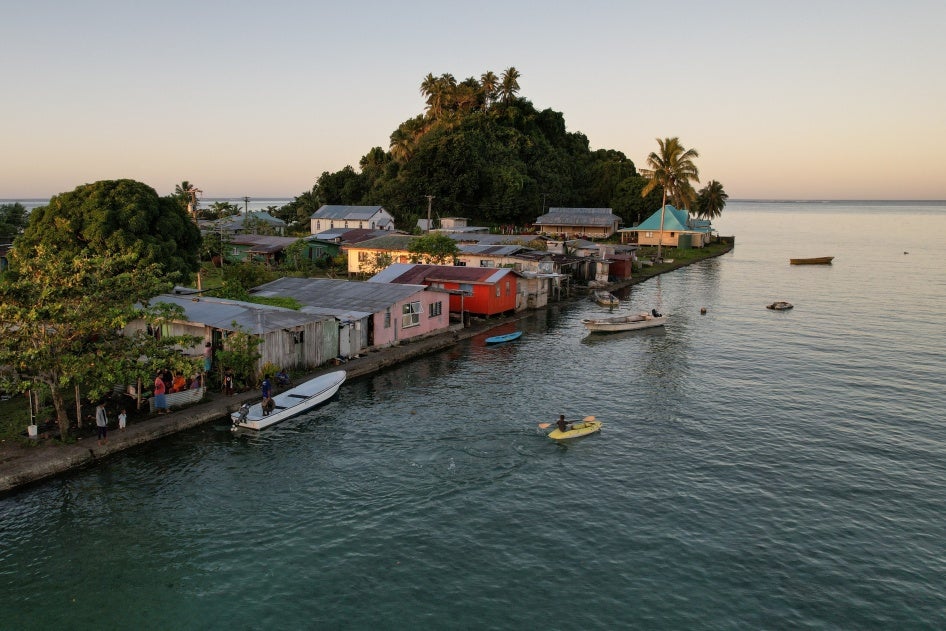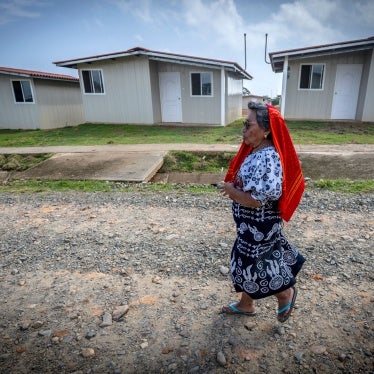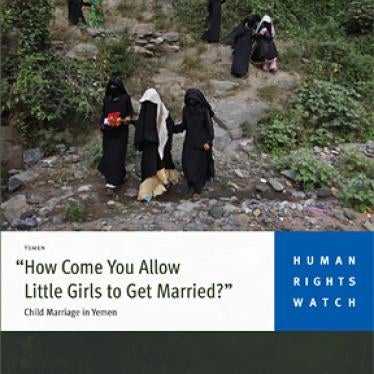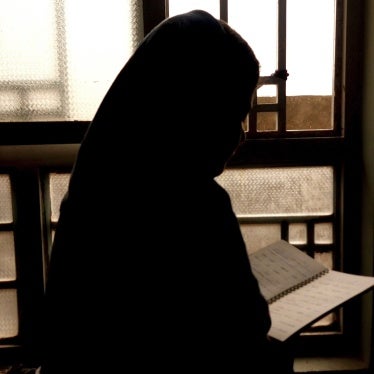As government leaders gather in Tonga this week for the Pacific Islands Forum, United Nations Secretary-General Antonio Guterres is sounding the alarm on rising sea levels as not just an environmental issue but a serious threat to human rights.
The latest report from the World Meteorological Organization shows that sea levels in the Pacific are rising faster than the global average, putting communities in this region at disproportionate risk of climate crisis-related harms. For communities whose homes, sources of livelihoods, and cultural heritage are being eroded, adaptation is an urgent necessity. Among the strategies being discussed is the planned relocation of entire communities to safer land.
Around the world, over 400 communities have already completed or are undertaking planned relocation because of natural hazards, including those intensified by climate change. But planned relocations are far from straightforward; many communities face serious threats to their rights during and after such moves.
Past experience shows that planned relocation should be approached with a steadfast commitment to human rights protection, and considered a “measure of last resort” after all efforts to adapt in place are exhausted. Planned relocation, if done without respecting the rights of those affected, risks compounding trauma. Communities should not be forced into relocation without their informed consent, but instead supported to lead these processes on their own terms. Relocation plans should ensure that relocated communities have access to the same or improved sources of livelihood, housing, education, and healthcare, and should not infringe on communities’ cultural heritage.
Some Pacific Island nations, including Fiji and Solomon Islands, already have national guidelines that, on paper, underscore the importance of rights-respecting approaches. How these instruments are implemented and funded remains to be seen.
As Pacific leaders gather in pursuit of a bold vision of moving “beyond policy deliberation to implementation – to achieve transformation by building better now,” it is imperative that all conversations on planned relocation adopt rights-respecting approaches. The global community should respond to the Pacific SOS, including by ensuring all planned relocation policies and funds center communities’ rights and leadership.










